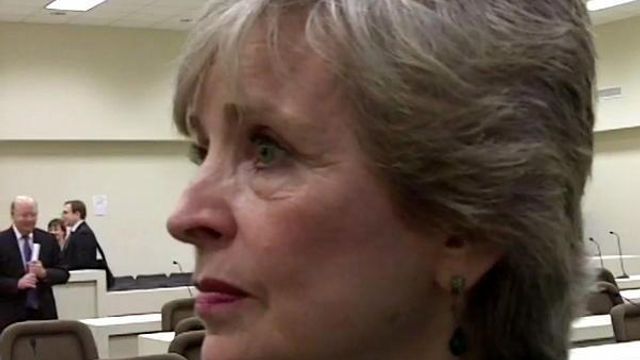Five days could spark new school calendar battle
A skirmish over five extra days in the school calendar could reignite a longstanding battle over the length of North Carolina's school year next session.
Posted — UpdatedThe longstanding battle over the length of North Carolina's school year could rear its head again next session.
In 2004, tourism lobbyists, business owners and some parents prevailed on lawmakers to limit the length of the school calendar. They argued that local school boards were setting school start dates earlier every year, cutting into beach rentals, camp enrollments, part-time labor availability and family vacations.
Educators argued that those interests shouldn't outweigh schools' needs to address early college programs, snow days, and other issues. But they lost the battle: state lawmakers told local boards they couldn't start school before August 25th, couldn't end after June 10th, and must include a minimum of 180 days of classroom instruction.
A provision in this year's budget raises that to 185 days by the 2012-13 school year, adding five more classroom days between those bookend dates.
About half the state’s 120 school districts have already asked the State Board of Education for a waiver. Those requests have been put on hold for now after a request by Gov. Bev Perdue.
At a town hall meeting in Cornelius Monday, House Speaker Thom Tillis predicted lawmakers would repeal the five-day addition when they come back into session next May.
Senate Education chair Jerry Tillman, R-Randolph, thinks differently.
“I don’t see any indication that the Senate would be prone to do that,” he said.
Tillman was the chief proponent of adding the extra days. “When you look at the length of our day and our year, we are on the short end of the stick, the short end of test scores,” he said. “We’re in a global marketplace, so to compete, I think we need more instructional time for the students. I don’t know how you get it without doing that.”
The law didn’t take effect this year because budget-writers didn’t add any extra money to keep the lights on and the buses running for the extra days. But Tillman says lawmakers will fix that problem when they come back next May.
“There will be money,” he pledged, noting that budget-writers will have funds left over from appropriations for diesel fuel for school buses. Diesel prices have come down since the budget was written this past spring. “We can cover it, I do believe. We’re not gonna let ‘em sit out there without the funds. We can’t do that.”
But Tillman says NC's school calendar needs more comprehensive reform than just five extra days in class.
“What I do think we’ll have to look at is the start date of August 25th,” he said. “I do think there will be a little bit of tweaking on not using the 25th as a hard date, but whenever that last Monday comes in the month, which will give them a little leeway.”
“But teachers need some time down, and kids need some time down. I would love for everybody to have a flexible calendar, where they could use a year-round calendar and work all these things in,” he added.
Still, Tillman conceded, changing the school calendar law will be a hard sell, politically speaking. “I’m ready,” he joked, “but you’ve gotta get a lot of ponies to go along with the horses.” His unedited comments are above.
Tillman already has one member of the herd on his side: State Schools Superintendent June Atkinson. She sounded like she was reading from his notes today when she talked to reporters about the extra days.
“I believe that we do need to extend the school year for our students,” she said. “We need to do so because we are competing with students across this world who are going to school at least 200 days.”
Atkinson also said she favors a repeal of the school calendar law to allow “schools to start when it is best for that school district to start, and so that we can move to a balanced calendar.”
Atkinson says a different school calendar with shorter and more frequent breaks would give teachers more opportunities to work with students who are falling behind. “There’s lots of research from Harvard University and from Duke University that show we can improve student achievement” by doing away with a schedule that gives students almost three months at a time out of the classroom.
But Atkinson said she’s concerned about the cost of the extra days to school districts that are already strapped for cash. “I would hope the General Assembly would provide transportation costs and other costs associated with the extension,” she said.
If not, said Atkinson, “School districts are going to have to take those dollars from another place. And that again will have an impact on the classroom and the students in the classroom.”
Her unedited comments are above.
Copyright 2024 by Capitol Broadcasting Company. All rights reserved. This material may not be published, broadcast, rewritten or redistributed.






